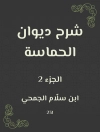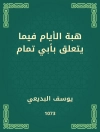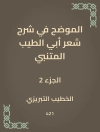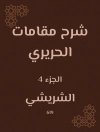In ‘The Lays of Marie de France, ‘ the 12th-century poetess offers a compelling collection of narrative poems that intricately weave themes of love, chivalry, and the supernatural. Utilizing a lyrical style characteristic of medieval Breton lays, Marie employs a stanzaic structure complemented by rhythmic precision. Her stories, rich with folklore and moral complexity, reveal the nuanced dynamics of courtly love, often challenging contemporary societal norms. Alongside her exquisite craftsmanship, Marie’s work reflects the cultural fusion of Anglo-Norman and Celtic traditions, inviting a closer examination of the role of women in literature and society of her time. Marie de France, a pioneering figure in medieval literature, likely drew inspiration from her own experiences as a woman navigating the patriarchal frameworks of the 12th century. As one of the first known female writers in the French language, her unique perspective is crucial in understanding the evolution of female agency in literary discourse. Her historical context, marked by the fusion of cultures and the emergent romance genre, profoundly influenced her portrayal of complex characters and emotional depth. Readers interested in the intersection of gender, love, and culture in medieval literature will find ‘The Lays of Marie de France’ an essential and enriching experience. This collection not only offers a glimpse into the poetic tradition of the time but also stands as a testament to Marie’s literary prowess, making it a must-read for scholars and lovers of classical literature alike.
Over de auteur
Marie de France stands among the foremost figures in Medieval literature, her identity shrouded in the mystery of the 12th century, yet her work transcends time with its poignant exploration of love and chivalry. Primarily known for ‘The Lays of Marie de France’ – a collection of Breton lais that weave together the realms of the courtly and the fantastic – she has commanded scholarly attention for her narrative prowess and her contributions to the genre of short, romantic tales often with a fairy-tale quality (Burgess & Busby, 1999). Marie’s craftsmanship in blending the appeal of folklore with the social intricacies of aristocratic life marks her literary style, characterized by succinct storytelling, refined emotion, and a subtle touch of moral reflection. The lais themselves, often concerning themes of love, loss, and destiny, provide a window into the culture and values of the time, while demonstrating the author’s innovative use of narration and verse. Although the precise details of her life – her exact origin, her social standing, and even the breadth of her work – remain elusive, Marie de France’s influence is indisputable, affirming her as a pioneer for female writers and a cornerstone figure in the canon of medieval European literature. Her integration of the supernatural and the chivalric codes, along with her articulate expression of female voices within the texts, indeed cement her legacy within the literary tradition.












